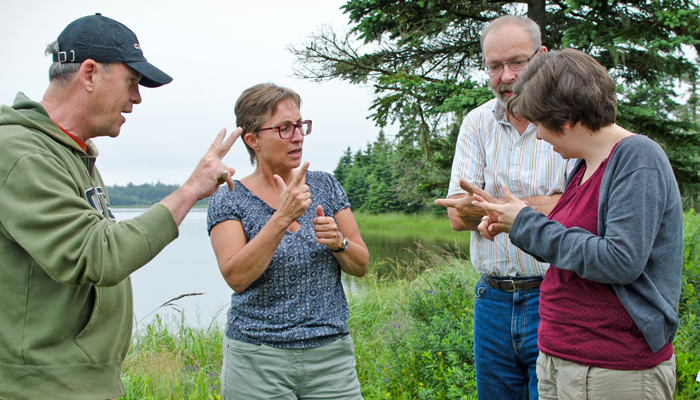A Legacy of Language: Renewing the Gaelic Spirit
More than just a way of communicating, language is a part of a person’s identity and an expression of a community’s culture. In Nova Scotia, the variety of traditional languages and dialects that exist reflect our shared history and through their preservation, our heritage continues to be enriched.
The Gaelic language has been part of this province’s linguistic diversity since the mid-1700s, when pioneering Gaels from the Islands and Highlands of Scotland began establishing communities and villages along Nova Scotia’s eastern mainland and on Cape Breton Island.
During these early stages of settlement, language was passed from generation to generation through the “taigh ceilidh” or “visiting house”; gatherings where local news, songs, stories, music and dance were shared and enjoyed.
By 1867, Gaelic was the third most spoken language in Canada and by 1900, as many as 100,000 Nova Scotians spoke Gaelic as their first language. However, changes in the late 19th and early 20th century, including the growth of cities, the boom of industrial jobs, the expansion of railroads and the introduction of English-only school systems, eroded the Gaelic language to near extinction.
Thanks to community activism, provincial support and tradition-bearers who maintained the language over the years, Gaelic is experiencing a revival in interest. Estimates place the number of Gaelic speakers and learners in Nova Scotia between 1,000 and 2,000; a number that continues to grow through organizations like Sgoil Ghàidhlig an Àrd-Bhaile (the Gaelic Language Society of Halifax).
Established in 2005 and comprised of individuals committed to preserving and enhancing Gaelic language and culture within the Halifax community, Sgoil Ghàidhlig an Àrd-Bhaile is a vibrant and forward-thinking organization that promotes, provides and supports authentic Nova Scotia Gaelic language learning for people of all ages.
During the year, Sgoil Ghàidhlig an Àrd-Bhaile will host several Gaelic immersion workshops in Halifax. Also known as “Gàidhlig aig Baile”, or “Gaelic in the Community”, the workshops introduce students to the Gaelic language through conversation, everyday activities and games in a total immersion environment.
To learn more or to register for an upcoming workshop, visit the Sgoil Ghàidhlig an Àrd-Bhaile website.


